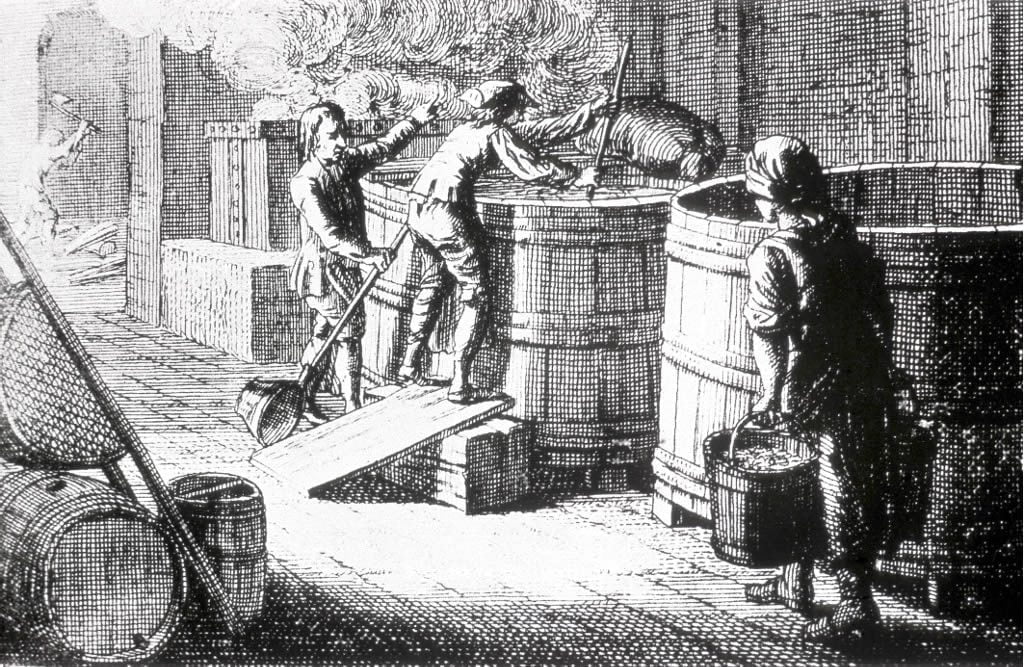In this article, we will explore the history of beer, from its humble beginnings to its present-day status as a global beverage phenomenon.
The Origins of Beer
The history of beer can be traced back to ancient Mesopotamia, where the Sumerians are believed to have been the first to brew beer around 5,000 BCE. They made beer by fermenting bread, and it was often consumed as a dietary staple.
The Sumerians even had a goddess of beer, Ninkasi, who was worshipped as the provider of the drink. Beer spread to ancient Egypt, where it was a staple of the daily diet and played a crucial role in religious rituals and medicine. The ancient Egyptians even had a hieroglyphic symbol for beer, emphasizing its importance in their culture.
The Evolution of Brewing Techniques
As beer continued to spread throughout the ancient world, different civilizations developed their own brewing techniques. The Babylonians, for example, brewed beer using barley, and their recipes have survived on cuneiform tablets.
The Greeks and Romans also had their own versions of beer, which were often flavored with herbs and spices. However, it was the monks of medieval Europe who refined brewing techniques and standardized recipes, laying the foundation for modern beer production.
The introduction of hops to beer, which occurred in the 9th century, revolutionized the brewing process. Hops added flavor and aroma to the beer, as well as acting as a natural preservative. This innovation led to the creation of new styles of beer, such as lagers and ales, and played a crucial role in the development of the modern beer industry.
Beer in the Middle Ages
During the Middle Ages, beer became an integral part of daily life in Europe, especially in monasteries and towns. Monks brewed beer as a way to purify water and provide sustenance during fasting periods.
The quality of beer improved significantly during this time, and brewing became a respected profession. The growth of trade and commerce in the medieval period also led to the establishment of breweries in urban centers, and beer became an essential commodity for the working class.
The Reinheitsgebot and the Birth of Modern Beer
In 1516, the Reinheitsgebot, also known as the German Beer Purity Law, was enacted in Bavaria. This law stipulated that beer could only be brewed using barley, hops, and water (yeast was added to the list after its discovery).
The Reinheitsgebot was one of the earliest food safety regulations and is considered a milestone in the history of beer. It laid the foundation for the production of high-quality beer and has influenced brewing practices around the world.
During the Industrial Revolution, technological advancements such as the invention of the steam engine and the development of refrigeration transformed the beer industry.
These innovations made it possible to produce beer on a large scale and led to the rise of commercial breweries. The introduction of pasteurization also extended the shelf life of beer, allowing it to be transported over long distances.
Globalization and the Craft Beer Movement
In the 19th and 20th centuries, beer production became increasingly industrialized, with the rise of multinational brewing companies and the standardization of beer styles.
However, the latter half of the 20th century saw a resurgence of interest in traditional brewing methods and unique, artisanal beer styles. This led to the craft beer movement, which emphasized quality, flavor, and innovation.
The Future of Beer
Today, beer continues to evolve and adapt to changing consumer preferences and global trends. The craft beer movement has gained momentum, and there is a growing demand for organic, gluten-free, and low-alcohol beers.
The rise of microbreweries and brewpubs has also contributed to the diversification of beer styles and flavors. As the beer industry continues to innovate and expand, one thing remains certain – beer will always hold a special place in human history and culture.
